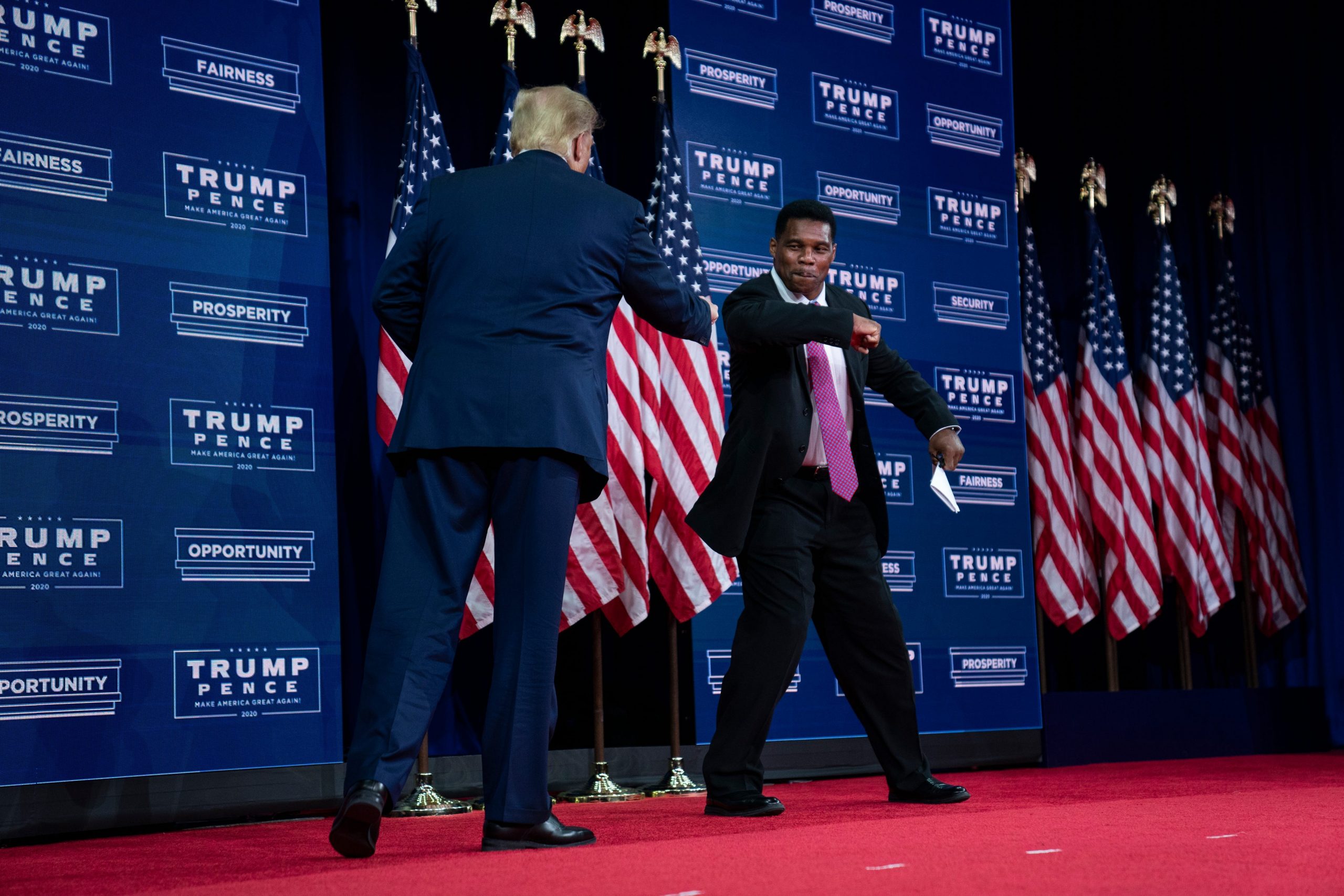
AP Photo/Evan Vucci
- At a Georgia campaign event on Friday, President Trump unveiled a $500 billion economic plan designed to boost opportunities for for Black Americans.
- The “Platinum Plan” would create 3 million new jobs and 500,000 new black-owned businesses, according to Forbes.
- Trump also announced that he supports making Juneteenth a federal holiday, along with designating the Ku Klux Klan and Antifa as terrorist organizations.
- The incumbent president has struggled with racial controversies throughout his first term and hopes to peel off enough disaffected black Democrats and political independents to win reelection.
- Visit Business Insider’s homepage for more stories.
On Friday, President Trump pledged to increase economic opportunities for Black Americans with a $500 billion measure aimed at creating 3 million new jobs and 500,000 new black-owned businesses, according to Forbes.
“I’m here today to announce a brand-new plan to deliver more opportunity, more security, more fairness, and more prosperity to Black communities,” Trump said in his address at a Georgia campaign event. “We call it the Platinum Plan, and that’s a contract with Black Americans.”
The event featured two of Trump’s most prominent Black supporters, Ben Carson, the Secretary of Housing and Urban Development, and Herschel Walker, the former NFL player.
In his speech, Trump described himself as a friend to the Black community who would make investments in treatments for kidney disease, diabetes, and sickle cell. He also pledged to continue the economic gains that occurred under his administration before the coronavirus pandemic reached the US.
“In the first three years, we’ve achieved the lowest black unemployment rate in history,” he said. “The black youth unemployment rate reached an all-time low. I will always put Americans first and that includes — very importantly — Black Americans.”
Trump then pivoted to the Democrats, accusing the party of neglecting Black Americans.
"They want to take the Black voter for granted and they have taken the Black voter for granted," he said. "It's not right and it's not fair and it's not going to happen."
As Trump enters the general election with most Black voters solidly behind former Vice President Joe Biden, he's aimed his re-election pitch at the economy, an issue where he still receives high marks by many voters. In 2016, Trump received 8% of the black vote, compared to former Secretary of State Hillary Clinton, who won 88% of the black vote, according to the Pew Research Center.
Trump also pledged his support for making Juneteenth a national holiday, along with prosecuting the Ku Klux Klan and Antifa as terrorist organizations.
Juneteenth, which commemorates the end of slavery in the US, dates to June 19, 1865, when enslaved Black Americans in Texas were finally informed that they had been set free. In June, after heavy criticism, Trump moved the date of a campaign rally in Tulsa, Okla., that would have coincided with the anniversary of the 1921 Tulsa race massacre, where an unknown number of black citizens were killed by white vigilantes. In an interview with The Wall Street Journal this summer, Trump falsely claimed that he made the holiday "very famous."
Trump has struggled with racial issues for years, from his "birther" campaign aimed at former President Barack Obama, the first Black president in US history, and his 2017 handling of the neo-Nazi rally in Charlottesville, Va., to pointed criticisms of prominent Black journalists and his open disparagement of the Black Lives Matter movement.

